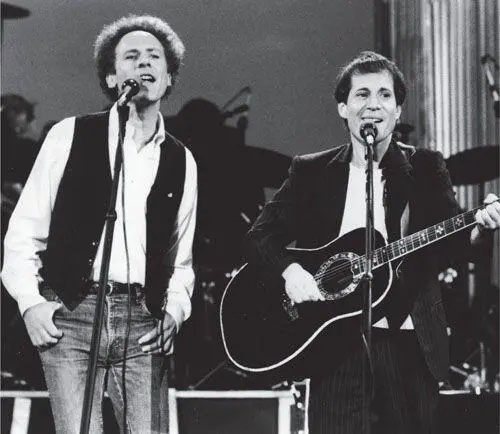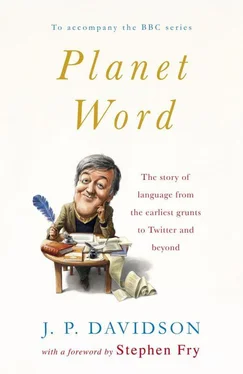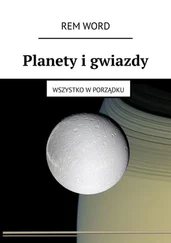Richard is in full flow now. ‘If you pick up a poem for the first time you have to piece it together. It’s much harder. Whereas a song by Coldplay like “Fix You” has the lyrics “I will try to fix you.” It’s very direct, and the fact that the lyrics may not be as well crafted is compensated by the beauty of the tune, and is enough to turn it into something deeper. And on top of that you have the feeling that your whole generation heard that song together, so it has a binding effect. If you stood in a stadium with 45,000 other people who know those words, it’s the Nuremberg Rally of pop.’
He’s right, of course. Pop songs are a brilliant way of people sharing a culture. But, despite his love of popular lyrics, does Richard still read poetry? He had to read lots of it at Oxford. He laughs.
‘I think there was a six-month period in which I understood it. I tried to read something by Yeats the other day which I know used to be my favourite poem. It’s gone completely. It’s as if I’ve forgotten the language.’

Paul Simon, right, with Art Garfunkel
If you’ve ever wondered why you sing in the bath (if you don’t, ignore this bit); or why you spent all those hours and hours as a teenager, shutting out the annoying world of parents and other people, glued to Radio 1 and the charts; or why the hairs on your neck prickle and your heart beats faster whenever Wagner’s music fills the air — well, if you’ve ever wondered, sorry, but nobody really knows. To be precise, scientists can’t agree on what it is about music and singing that touches us so profoundly, and whether it’s something to do with our evolution. Are we hard-wired to be musical?
Music is universal. It’s found in all cultures across the ages, and archaeologists have unearthed musical instruments dating from as far back as 34,000 BC. The mystery is why humans have been singing and making music virtually since prehistoric times. What purpose does it serve?
Evolutionary psychologists have a few theories. Some think that music originated as a way for males to impress and attract females, rather like brightly coloured birds competing with each other to produce the most elaborate and complex songs. In other words, it’s a tool of evolution and natural selection: the male with the biggest lungs and catchiest song gets the girl. Another idea is that women were the original music-makers, and it goes all the way back to the universal instinct of the mother crooning and singing to her child. Experiments show that mothers automatically make their speech more musical when they talk to their babies, more lilting and melodic, and the theory is that music perhaps evolved as a sort of prehistoric baby-pacifying tool. Human babies can’t just cling on to their mothers’ bodies the way other primates do, so perhaps the singing was a way of the mother keeping contact with her children when she had to put them down to work.
And then there’s a third theory that identifies music as a sort of social glue, a way of bonding early human communities, much in the same way that football supporters or people in church or families round the piano singing together enhances a sense of tribal identity. The evolutionary psychologists trace this back to the necessity for early tribes to work together for survival: communal singing demands coordination, bringing many voices together, and the theory goes that this is a way of practising for the kind of teamwork crucial in hunting or fighting for survival.
Interestingly, researchers at the Montreal Neurological Institute discovered, when they scanned musicians’ brains, that listening to music stimulated exactly the same part of the brain which food and sex affect. In other words, music lit up the basic, instinctual, pleasure centres of the brain.
However, others dismiss these ideas. The Harvard linguist Steven Pinker caused an uproar when he addressed a conference of cognitive psychologists in 1997 and told them that their field of music perception was, basically, a waste of time because music is just an evolutionary accident, a redundant by-product of language: ‘Music is auditory cheesecake,’ he said, ‘an exquisite confection crafted to tickle the sensitive spots of several of our mental faculties.’
For many people — whatever the neurological and evolutionary theories — music is another form of language. A way of communicating without words.

Music is universal and serves as a social glue
Much research has been done on the use of music therapy with people suffering from dementia. They find verbal communication very difficult because the disease causes aphasia and amnesia. If you can’t find the words, if you can’t remember who you are, how do you express yourself and connect yourself to the people and the frightening world around you? Music therapists use singing and music in place of words. Singing a song with someone with Alzheimer’s doesn’t put demands on them; it doesn’t require the answer to a question; it doesn’t make the world even more confusing than it is. Singing is a way of being together, of inviting the person to take part, of somehow bypassing the damaged part of the brain that can no longer form the words. It releases tension and calms anxiety because it opens a door to expression when all the other doors are barred and shut tight. Music is part of who we are. It travels further, down and down into that part of ourselves which is older, deeper, mysterious.
Auditory cheesecake indeed.
If you were to chant ‘Helps you work, rest and play’, the chances are most people will respond with ‘A Mars a day’. Or if you sing, ‘Now hands that do dishes …’, a surprising number of you will feel the urge to sing ‘with mild green Fairy Liquid’. Someone younger will have the same automatic response to ‘Just do it’, immediately associating it with Nike. For just as succinct language can have a powerful effect on us through poetry and song, so the perfectly turned phrase can enter our subconscious, influencing our actions and decision-making. Nowhere is the use of the clever slogan seen more explicitly than in the language of advertising.
From an ancient Egyptian town crier hired to shout out news of the arrival of a goods ship to a computer pop-up ad offering the secrets to a flat belly, we have always found ways of attracting the public’s attention to a product or business. Advertising may have become much more sophisticated, but wherever communities and commerce exist, so too does the advert in some shape or another.
We’re been shouting our wares and promoting our products for thousands of years. Historians reckon that outdoor shop signs were civilization’s first adverts. Five thousand years ago the Babylonians hung the symbols of their trades over their shop doors, a practice still used today in areas of poor literacy or in some of the traditional shops like barbers — the red-and-white pole — or the three golden balls of the pawnbroker. A poster found in Thebes from 1000 BC offers a gold coin for the capture of a runaway slave. The Romans advertised the latest gladiator fight on papyrus posters and seem to have introduced the world’s first billboards with their practice of whitewashing walls and painting announcements on them.
The advent of printing and spread of literacy meant advertising could expand into handbills and newspapers. A newspaper ad for toothpaste appeared in the London Gazette in 1660: ‘Most excellent and proved Dentifrice to scour and cleanse the Teeth, making them white as ivory.’
Читать дальше














